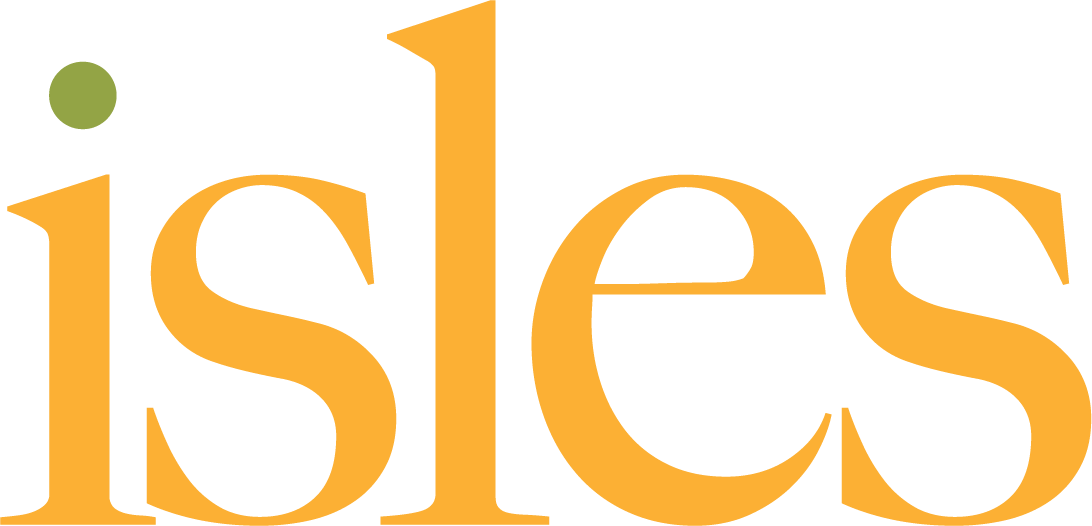Update – 4/5/16
After lots of back and forth, Governor Christie committed $10 million out of this year’s budget to get more lead out of NJ homes, especially those with kids. How this gets spent really matters!
We appreciate his team’s willingness to reach out and learn about solving the challenge at the community level, where Isles has developed high-impact, low-cost approaches that work.
Thanks to all those who joined us – the Housing and Community Development Network of NJ, NJ Citizen Action, the Anti-Poverty Network, and many others – to get this done.
We look forward to learning the details of the plan in the coming days.
Update – 2/3/16 – On Monday, Isles announced surprising data, being shared across the country, showing high levels of lead in children in 11 NJ cities.
In response to feedback, we cross-referenced the numbers once again and we have two adjustments to make. In two cities, Atlantic City and Newark, the revised numbers show a higher % of children with elevated BLLs for 2014. Atlantic City now has the highest % of children with elevated lead levels in the state. See updated table here.
|
Children in 11 NJ Communities are Testing Positive for Lead at Higher Rates than Children in Flint, MI
Advocates launch #LeadFreeKidsNJ to put lead prevention in state budget
2/1/2016
Community leaders and advocates joined parents and their young children at a State House press conference today to urge Governor Christie to support lead poisoning prevention measures. Kicking off a campaign to fund lead poisoning prevention, the Housing and Community Development Network of New Jersey (the Network); Isles, Inc.; New Jersey Citizen Action, the Anti-Poverty Network of New Jersey, and others are asking Christie to restore $10 million in funding for the Lead Hazard Control Assistance Fund (LHCAF) in the next state budget.
Funding earmarked for lead prevention has been diverted to other budget items, said Staci Berger, president and chief executive officer of the Network. “In 2016, no child should suffer from lead poisoning, it’s a completely preventable issue. Our budget should reflect that. We hope the governor will abide by the law and do right by our children by putting the money where it belongs. Our children should not be lead detectors.”
In 2004, the State of New Jersey introduced the Lead Hazard Control Assistance Fund to allocate resources for the removal of lead from older homes, offering deferred payment loans or grants to property owners. LHCAF has also financed home inspections, emergency relocations for affected families and efforts to educate the public about the risks of living in homes built before lead-based paints were banned in 1978. However, since the implementation of the LHCAF, the state has steered more than $50 million into its general treasury instead of the LHCAF as required.
“This fund has been raided for over a decade to balance the budget, which has had devastating consequences,” said Ann Vardeman, associate director of organizing and advocacy for New Jersey Citizen Action. “Thousands of young children are being found with elevated levels of highly toxic lead and not even a penny is put towards the fund. That’s why we’re launching the #LeadFreeKidsNJ campaign to ensure that Governor Christie includes proper funding for the lead prevention. Our goal is to send the governor 3,100 children’s handprints representing the children who will be needlessly poisoned by lead this year, to remind him that his budgetary decisions have real consequences to our children’s future.”
Advocates point to newly released data from Trenton-based Isles, Inc. that shows almost a dozen jurisdictions in NJ with higher incidences of children affected by lead, as compared to Flint, MI. In 2015, more than 3,000 new cases of children under six with elevated levels of toxic lead were reported. All told, about 225,000 young kids in New Jersey have been afflicted by lead since 2000.
“Water is not the only way children are lead poisoned,” said Elyse Pivnick, director of environmental health for Isles, Inc. “In NJ, the primary source of lead poisoning is chipping and peeling lead paint applied many years ago in housing that is not well maintained. Among children tested in 2014, there is a higher percentage of children with elevated blood lead levels (EBLL) in 11 cities and two counties in comparison with Flint to date. Over 3,000 NJ children were identified with EBLLs for the first time in 2015.”
At the event, Anti-Poverty Network Executive Director Serena Rice spoke as an advocate and mother of a six-year old. “When I explained to my son about why we were coming here today – about how some kids get sick because of the dust in their homes, and when they leave the hospital they have to go right back to the home that made them sick – his response summed it up perfectly. He said ‘Mommy that’s just wrong,’” said Rice.
In addition to funding for lead prevention, advocates also urged support for a new measure sponsored by Senator Shirley Turner (D-Mercer/Hunterdon) that would permit municipalities to inspect one and two bedroom multifamily homes. At the present, only rentals that three bedrooms or more are required to be inspected.
In the last session, a bill (S-1279) that would appropriate $10 million to the LHCAF was introduced by Senator Ronald L. Rice (D-Essex). However, the bill was ultimately pocket vetoed by Governor Christie.
“We’ve seen the national outrage resulting from lead contaminated water distributed in Flint, Michigan. We have our own crisis here in New Jersey that cannot be ignored,” said Senator Rice. “This is a public health issue that needs immediate attention. Lead poisoning can cause brain and nervous system damage, inability to pay attention, behavior and learning problems. The governor should have signed the legislation to fund lead hazard reduction efforts, yet he is preoccupied by a campaign that has become a priority over the needs of New Jersey residents. I will continue to fight for increased funding to protect our residents from lead exposure and keep working to bring attention to this issue until something is done.”
For more information on the Lead Hazard Assistance Control Fund including data from Isles, Inc., visit www.hcdnnj.org/lead.
|
Follow #LeadFreeKidsNJ on Twitter for updates
Frequently Asked Questions
Q: How many children in NJ are affected by Lead?
Each year, more than 3,000 children in New Jersey are poisoned due to lead exposure.
Q: What are the affects of lead exposure in children?
Lead is known to cause permanent neurological damage in children. It lowers IQ levels, negatively affects academic performance, and increases all types of learning disabilities. Lead poisoning, even at very low levels, impairs the development of those parts of the brain that regulate behavior and mood and is associated with attention deficit disorder, impulsiveness, aggression, and higher rates of criminal behavior. Lead is so toxic that it is unsafe at any level.
Q: What is the Lead Hazard Control Assistance Fund (LHCAF)?
In 2004, the State of New Jersey introduced the Lead Hazard Control Assistance Fund (LHCAF). This fund was created to allocate resources to remove lead from older houses and apartments by offering deferred payment loans or grants to property owners.The Lead Hazard Control Assistance Fund spent $16.5 million removing lead from older homes and apartments. It also financed home inspections, emergency relocations for affected families, and efforts to educate the public about the risks of living in homes built before lead-based paints were banned in 1978.
Unfortunately, by 2014, no funds were appropriated to the LHCAF, eliminating a significant resource for families and property owners trying to address lead hazards. Since 2004, about $53.7 million earmarked for the Lead Hazard Control Assistance Fund, as required by law, was diverted to the state’s general treasury to balance the budget and provide risky and unproven tax breaks to business. The NJ Assembly and Senate have passed bills in each of the last 3 years to restore at least $10 million to the LHCAF. Each year, Governor Christie has effectively vetoed the legislation.
Q: Why should my tax dollars be used to clean up lead?
In this case, they’re not! The revenue source for the Lead Hazard Control Assistance Fund comes from a 50 cent per gallon user fee on paint sold in NJ.
Financially, cleaning up lead paint hazards for your fellow citizens make enormous fiscal sense. The choice is between paying $5,000-$12,000 per unit to make a house lead safe, or $32,000 per year for each child who is poisoned by lead paint. These costs are embedded in the cost of crime/criminal justice, delinquency, special education, and lost tax revenues.
Read more FAQs here
Isles’ Experience
Founded in 1981, Isles, Inc. is a community development and environmental organization based in Trenton, New Jersey. With a mission to foster self-reliant families and healthy, sustainable communities, we design and develop effective services that support this mission and share what we learn with others who can make a difference.
Since 1999, Isles has been engaged in environmental health and policy work from many angles. In our role as a leader in environmental health, Isles has:
- Tested more than 2,000 homes for hazardous lead levels and found that more than 60% had enough lead present to affect a child’s IQ.
- Created the nationally-recognized ReHEET service that combines lead safety, energy efficiency and healthy homes retrofits as one “case.” We have provided retrofits to more than 170 Trenton homes over the past 4 years.
- Established the NJ Healthy Homes Training Center, one of 17 satellite training centers of the National Center for Healthy Homes, to train community health workers, social workers, building inspectors, etc. We have trained or been responsible for training more than 800 home- or child services- related professionals.
- Trained multiple teams of peer educators to visit homes and identify environmental asthma triggers and conduct sampling for lead.
- Compiled data for an environmental health profile of Trenton with comparisons to county and state data.
- Completed a survey in partnership with Rutgers Eagleton Institute to better understand Trenton residents’ knowledge, attitudes and practices related to the home environment.
- Created a tablet-based healthy homes assessment that links to a master database, enabling us to characterize the state of Trenton’s low income housing.
Contact
Elyse Pivnick
Director of Environmental Health
Isles, Inc.
[email protected]
609.341.4723
Isles & Lead in the News:

 Foster self-reliant families and healthy sustainable communities
Foster self-reliant families and healthy sustainable communities